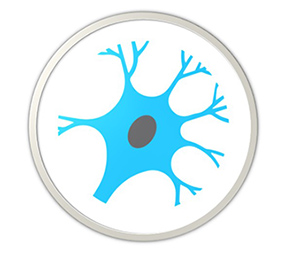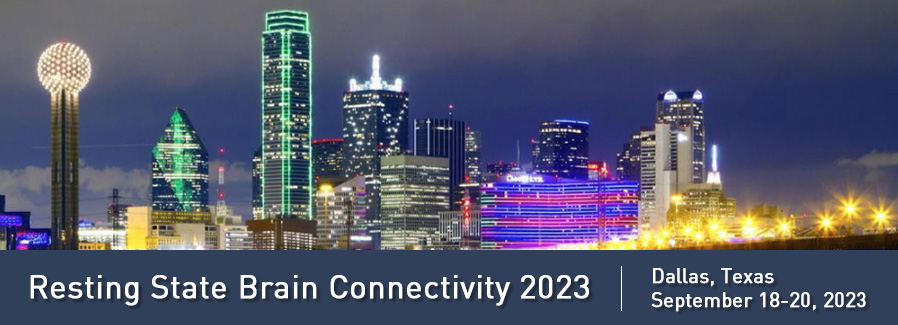 |
International Society for Magnetic Resonance in Medicine (ISMRM) |
 |
Follow us on Facebook! Follow us on Twitter! |
KEYNOTE SPEAKERS
DAY 1 - METHODS
Director, Northeastern University Biomedical Imaging Center
Principal Research Scientist; McGovern Institute for Brain Research, MIT
Susan Whitfield-Gabrieli is a Director of the NUBIC and a Professor in the Department of Psychology. The primary mission of her PEN Lab is to understand the brain basis of psychiatric disorders and to promote translation of this knowledge into clinical practice. Towards this end, she employs multimodal neuroimaging techniques to investigate the pathophysiology of psychiatric and neurodevelopmental disorders such as schizophrenia, depression, bipolar disorder, ADHD, autism, and dyslexia. Her goals are to discover biomarkers for improved diagnosis, early detection (potentiating early intervention and possibly prevention), prediction of therapeutic response (targeted towards precision medicine), and development of novel therapeutic techniques (e.g., real-time fMRI neurofeedback) with the hope of improving (or augmenting) currently available treatments. A secondary goal of her research is to develop functional imaging analysis tools to share with clinicians and the neuroimaging community at large.

JAMES S. HYDE GALA DINNER KEYNOTE SPEAKER
University Distinguished Professor of Psychology
Director, Interdisciplinary Affective Science Laboratory Northeastern University; Boston, MA
Lisa Feldman Barrett is a university distinguished professor at Northeastern University with appointments at the Massachusetts General Hospital (MGH) and Harvard Medical School. Her lab is developing a systems-level model of brain and body mechanisms to unify human affect, emotion, motivation, cognition and action. She takes a multidisciplinary approach, incorporating methods and concepts from a range of disciplines, including psychology, neuroscience, physiology, anthropology, philosophy, linguistics, evolutionary and developmental biology, computer science, engineering and the history of science. She is the recipient of a NIH Director’s Pioneer Award for transformative research, the Mentor Award for Lifetime Achievement from the Association for Psychological Science (APS), and the Distinguished Scientific Contribution Award from the American Psychological Association (APA). She is an elected fellow of the American Academy of Arts and Sciences, the Royal Society of Canada, and a number of other honorific societies. She is also a former president of the APS. She has testified before the US Congress, is the Chief Science Officer for the Center for Law, Brain and Behavior at MGH, and actively engages in informal science education for the public via popular books, articles and public lectures.

DAY 2 - MECHANISMS
Professor, Department of Biological Engineering
Director, Center for Neurobiological Engineering Massachusetts Institute of Technology
Alan Jasanoff is a bioengineer and neuroscientist whose research focuses on studying integrated functions of the nervous system using advanced imaging methods. His work spans aspects of molecular biology, chemistry, engineering, medical physics, and neural systems research, and his development of next-generation functional neuroimaging techniques has been recognized by innovation awards from the NIH and other sources. Before joining MIT as a faculty member, Jasanoff earned degrees at Harvard and Cambridge Universities and was a Fellow at the Whitehead Institute. At MIT, he has mentored dozens of students and postdocs, many of whom now run successful labs of their own. Jasanoff is founding Director of the MIT Center for Neurobiological Engineering and leads an NIH-funded training program for neuroengineering graduate students at MIT. He is also the author of The Biological Mind, a 2018 book that confronts popular myths in neuroscience.

DAY 3 - APPLICATIONS
Director of the Institute of Systems Neuroscience Heinrich-Heine-Universität Dusseldorf
Our long-term goal is to obtain a more detailed characterization of the organization of the human brain and its inter-individual variability in order to improve our understanding of its changes in advanced age as well as neurological and psychiatric disorders. Based on this knowledge, new approaches for diagnosis and outcome prediction at the level of individual patients are developed.
We pursue this objective by combining multi-modular MRT imaging, detailed neuropsychological characterization and innovative methods of data analysis and simulation. Thereby, an important focus of our Institute is to provide the developed tools and results to the scientific public in the form of software and data sets enabling the broad use of our research.



